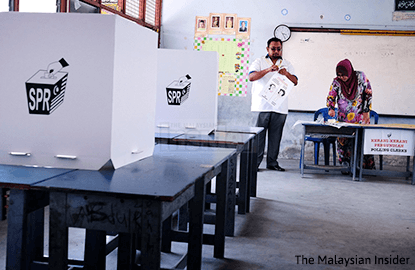
KUALA LUMPUR (Feb 25): An anti-graft watchdog has reminded elected representatives that their role is to serve their constituents and they should not get involved in any business that could contradict the needs of the people they represent.
The Centre to Combat Corruption & Cronyism (C4) said this today, following the furore over the sacking of two PKR assemblymen from Penang government-linked companies (GLCs).
C4 added that it was alarming to see elected representatives vote solely according to fraternity, thus diagnosing a severe lack in independence amongst officials elected to represent the people.
It said this was seen in Parliament recently in the vote on the Trans-Pacific Partnership Agreement.
The anti-graft watchdog also said that such practice raised a number of questions that must be answered by the political leadership, on the real roles that GLCs play in the administration, its policies on governance, mode of operations and financial accountability measures.
"Should elected representatives and politically active individuals be rightful candidates appointed as directors of top management of GLCs?
"How will political connections play out?
"Will these GLCs compromise professional and impartial decision making if pressured?"
It said that in the past, Malaysian GLCs have been cited as among the most extensive and powerful in the world in terms of capitalisation, market presence and socio-political mandate – comprising more than 30% of the Malaysian stock exchange’s capitalisation.
C4 added that many issues arose from the hiring of politically connected individuals to govern these critical entities, including the transparency of their appointments, their qualification for the responsibilities, independence, and the risk of acting as political proxies among others.
It said that in line with the government’s GLC transformation programme, these companies needed to be devolved and privatised at a quicker rate, and allowed to appoint the most qualified and suitable candidates for their board of directors and top management.
"Further feuds and vengeful politics could be minimised in the future through the reduction of politically influenced individuals directing state-owned enterprises," C4 said.